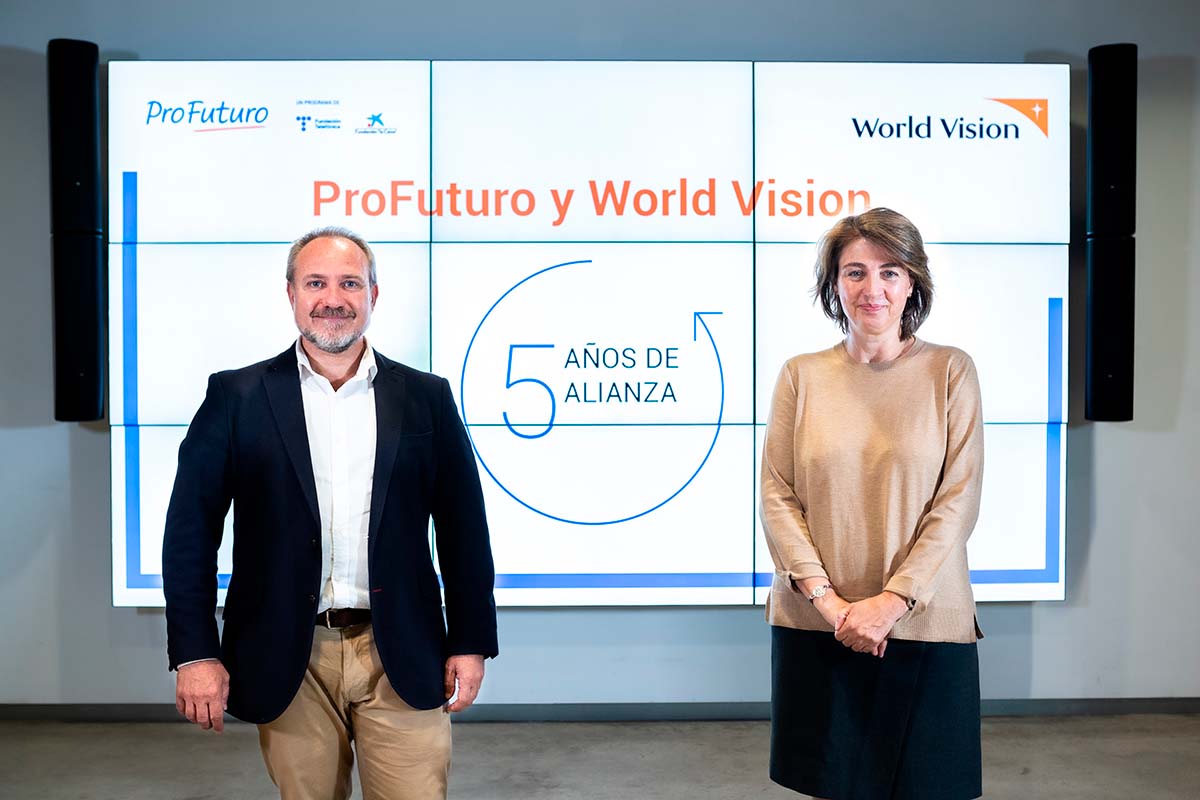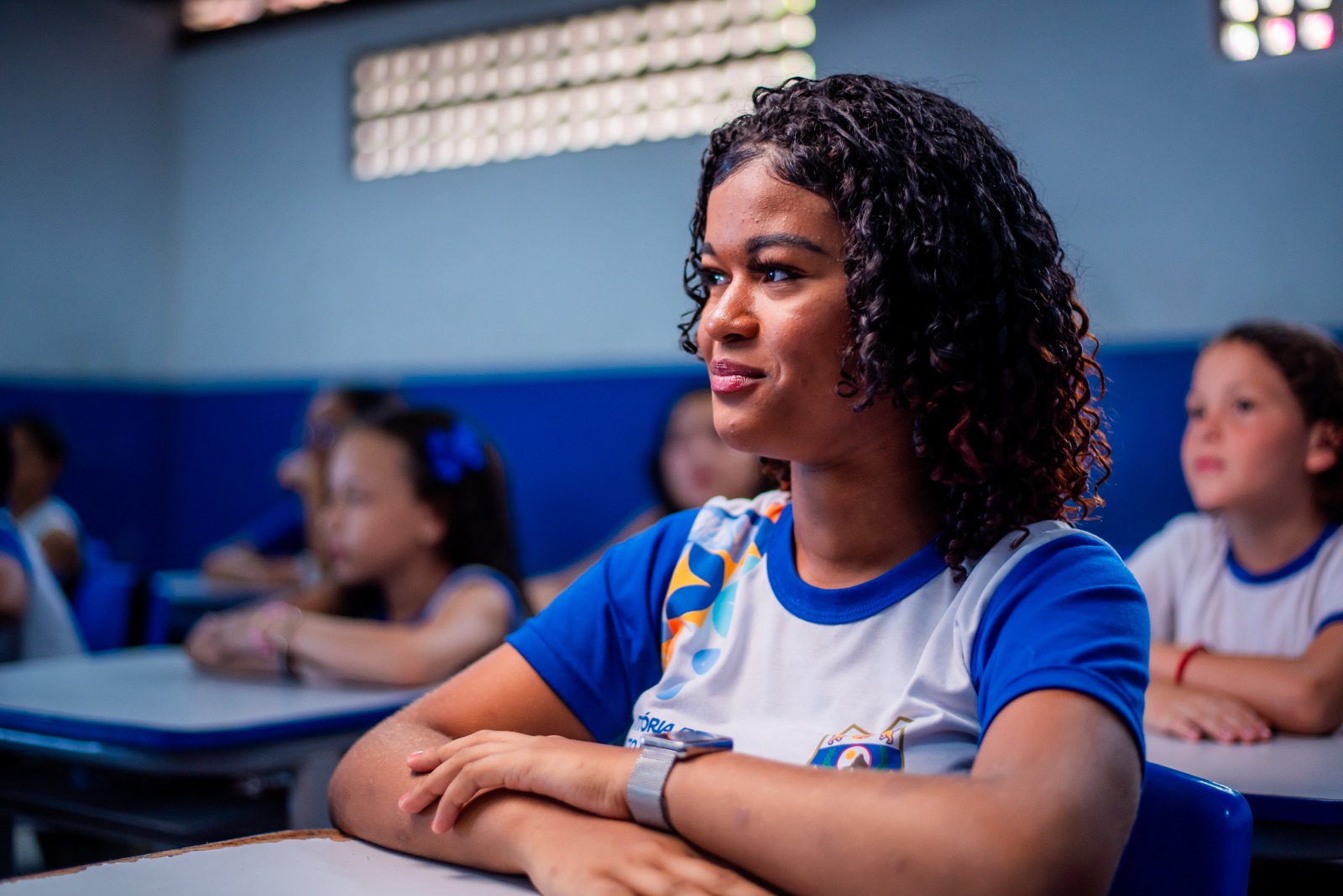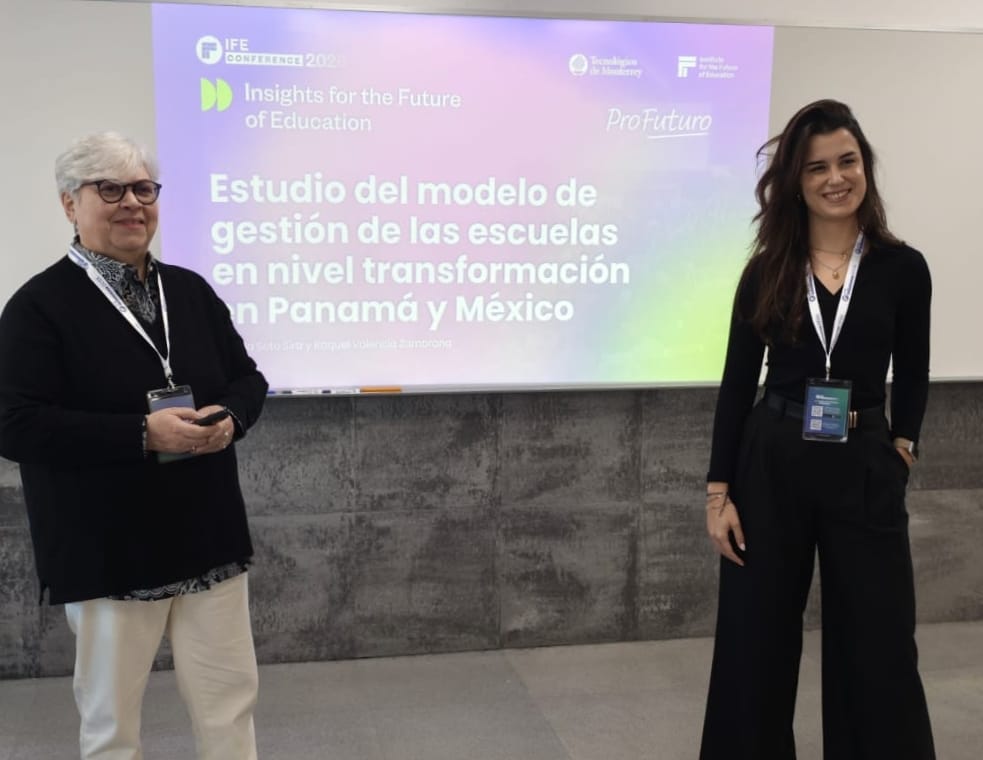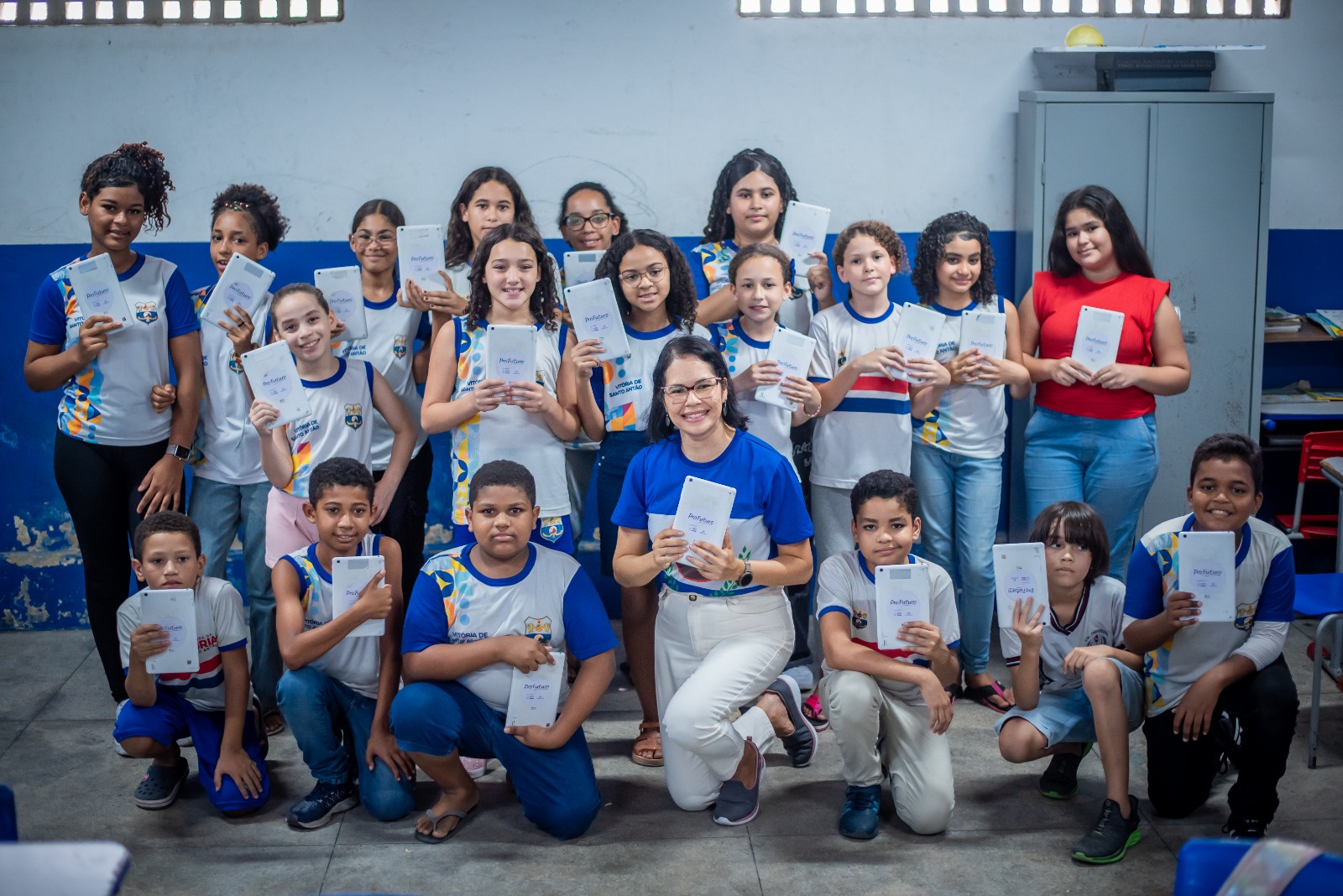We are celebrating five years of collaboration with the NGO World Vision, a strategic alliance that crosses borders, which has trained 6,857 teachers and has improved the educational quality of 195,974 children living in vulnerable environments. Our alliance has already implemented educational innovation projects in Angola, the Philippines, Zimbabwe, Rwanda, Senegal, Uganda and Sierra Leone.
The key to success lies in creating synergies. World Vision has an extensive network of schools in the countries where it operates internationally, work that our education proposal complements with digital and innovative resources for quality teaching and learning, technological equipment and teacher training.
Our journey with World Vision
Angola, Zimbabwe and the Philippines were the first three countries where we started working together in 2017, reaching 145 schools. In 2019, our collaboration expanded to Rwanda and to Senegal and, in 2020, to Sierra Leone and Uganda. By the end of 2021, 752 schools had benefited from the alliance.
2020 was also an important year for this joint venture, which grew as a result of the countries’ urgent need for continuity in distance education. Faced with school closures, we are stepping up efforts to ensure quality digital education.
Indeed, the Ministry of Primary and Secondary Education (MoPSE) in Zimbabwe showed interest in implementing our programme nationally, leading to a new project that aims to reach all primary schools in the country within three years.
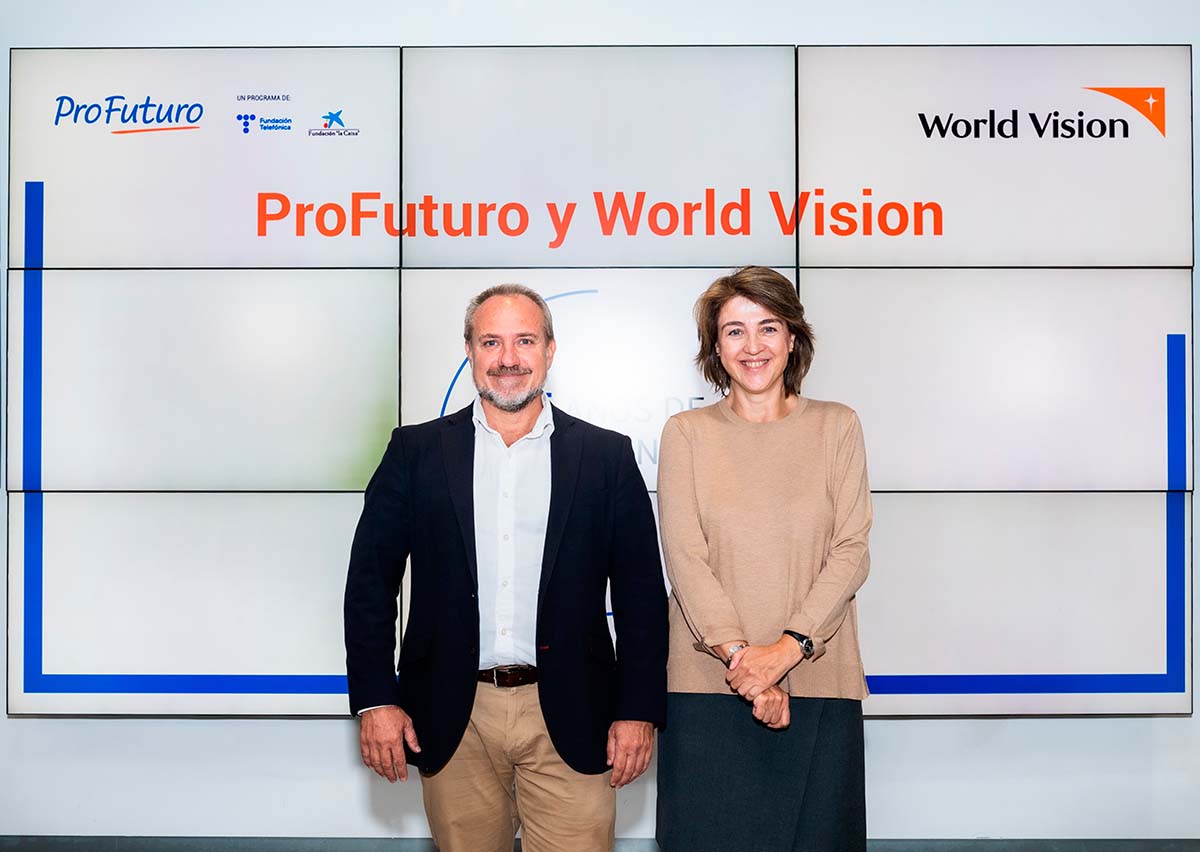
A sustainable alliance
Our partnership understands cooperation projects in a similar way; they empower the local counterpart to take ownership of the project with the aim of making it sustainable over time. We work together on the programme’s sustainability plan, involving third parties (the community, companies, governments, etc.) so that each project continues in the long term.
The alliance is an example of cooperation in the private sector and responds to a number of challenges that go beyond even education. “In keeping with SDG 17 of the 2030 Agenda, ProFuturo forges alliances to achieve its goals. World Vision has been one of the main global partners of our programme for many years,” says Magdalena Brier.
Javier Ruiz, CEO of World Vision Spain, adds that “although the project focuses on SDG 4 – Quality Education, it is interlinked with many others such as ending poverty, ending hunger, gender equality, the possibility of creating decent employment and future income”.
*You can consult our information dossier here.
We talk about digital education
As part of the celebration of this fifth anniversary of the alliance, we are launching a series of digital chats with World Vision, in which several members of both teams from Spain, the Philippines, Rwanda and Zimbabwe are participating.
The first conversation in this series focuses on the current educational situation in the Philippines in the aftermath of Covid-19. Magdalena Brier, CEO of ProFuturo and Javier Ruiz, CEO of World Vision Spain, interview Rommel Fuerte, Country Director of World Vision Philippines.
On 5 October, coinciding with World Teachers’ Day, journalist Olga Lambea moderated a discussion between Álvaro Muñoz, coordinator of the ProFuturo programme for World Vision, and Iramkunda Emmanuel, a teacher in Rwanda.
On 11 October it was the turn of José Manuel Carrillo, coordinator of Training, Mentoring and Support at ProFuturo, and Bulisaninkosi Khumalo, coordinator of the project in Lupane (Zimbabwe). This talk, also moderated by Olga Lambea, focused on the training of teachers and non-teaching staff, a very important issue for educational transformation in particularly vulnerable environments.



